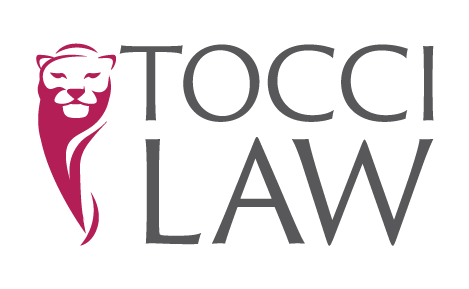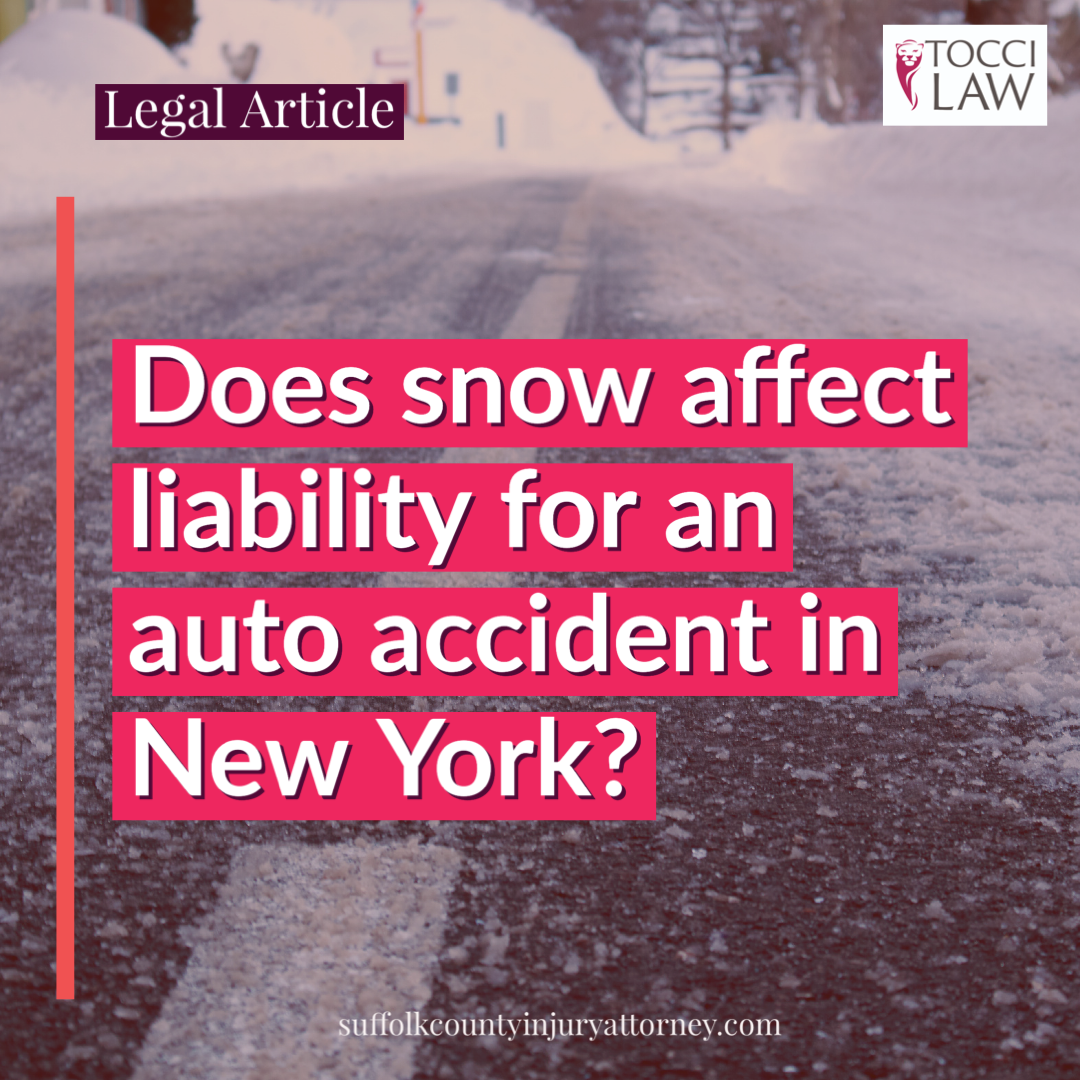As Long Islanders, we are not strangers to driving in snowy conditions. In the past few years, there has been less snowfall than we are accustomed to enduring. As this winter season blankets Long Island in snow, it is essential for drivers to remember to navigate the roads with caution.
For those involved in auto accidents during snowy conditions, questions about liability often arise. Generally, one is liable for causing a motor vehicle accident if they operated their vehicle negligently. If the snow contributes to the accident, was the driver negligent? Can they be excused, even in part, for an accident caused by the snow? How does snow affect liability in auto accidents in New York? Below we will explore the legal considerations.
Weather Conditions and Negligence:
Snow and ice can significantly impact road conditions, leading to reduced visibility and slippery surfaces. However, adverse weather alone does not absolve drivers of their duty to exercise reasonable care. Understanding the concept of negligence is crucial – even in inclement weather, drivers must adjust their behavior to maintain safe driving practices. In personal injury cases, it is the responsibility of the Plaintiff (injured party) to prove that a driver was negligent. The Plaintiff has the burden of proving that the accident was not merely caused by snow and ice, but that the responsible driver was driving unsafely under the circumstances.
Determining Fault in Snowy Conditions:
Establishing fault in auto accidents during snowy conditions involves a careful examination of the circumstances. Factors such as vehicle speed, following distance, and adherence to traffic rules become even more critical. While weather conditions may contribute to an accident, it’s essential to identify any additional factors that might have contributed to the collision.
Legal Obligations for Drivers in Snowy Weather:
New York law requires drivers to adapt to changing weather conditions. Failing to adjust speed, using appropriate tires, and maintaining a safe following distance can be considered negligent behavior. Understanding these legal obligations is key for both drivers involved in accidents and those seeking compensation for injuries.
Comparative Negligence in New York:
New York follows a comparative negligence system, which means that liability can be shared among multiple parties involved in an accident. Even if weather conditions contributed to the collision, the actions of each driver will be assessed to determine the degree of fault. This system allows for a fair allocation of responsibility and potential compensation.
Insurance Considerations:
Auto insurance plays a crucial role in addressing liabilities arising from accidents in snowy conditions. Understanding the terms of your insurance policy, including coverage for weather-related incidents, is vital. Additionally, prompt reporting and documentation of the accident can strengthen your insurance claim. We are happy to assist you in deciphering which benefits you have available to you after an accident.
Legal Guidance for Snow-Related Auto Accidents:
Given the complexities of liability in snowy weather, seeking legal advice is advisable. As personal injury attorneys experienced in handling auto accidents in Long Island, we can help assess the unique circumstances of your case, guide you through the legal process, and work towards securing fair compensation.
Navigating auto accidents during snowy conditions requires a nuanced understanding of liability and legal considerations. By being aware of your obligations as a driver and seeking legal guidance when needed, you can better navigate the aftermath of a snow-related auto accident in New York. Stay safe on the roads, and remember that legal support is available to help you through challenging situations.
To schedule a free consultation to discuss your specific rights and options, contact us at (631) 343-7676 or at info@toccilaw.com.









